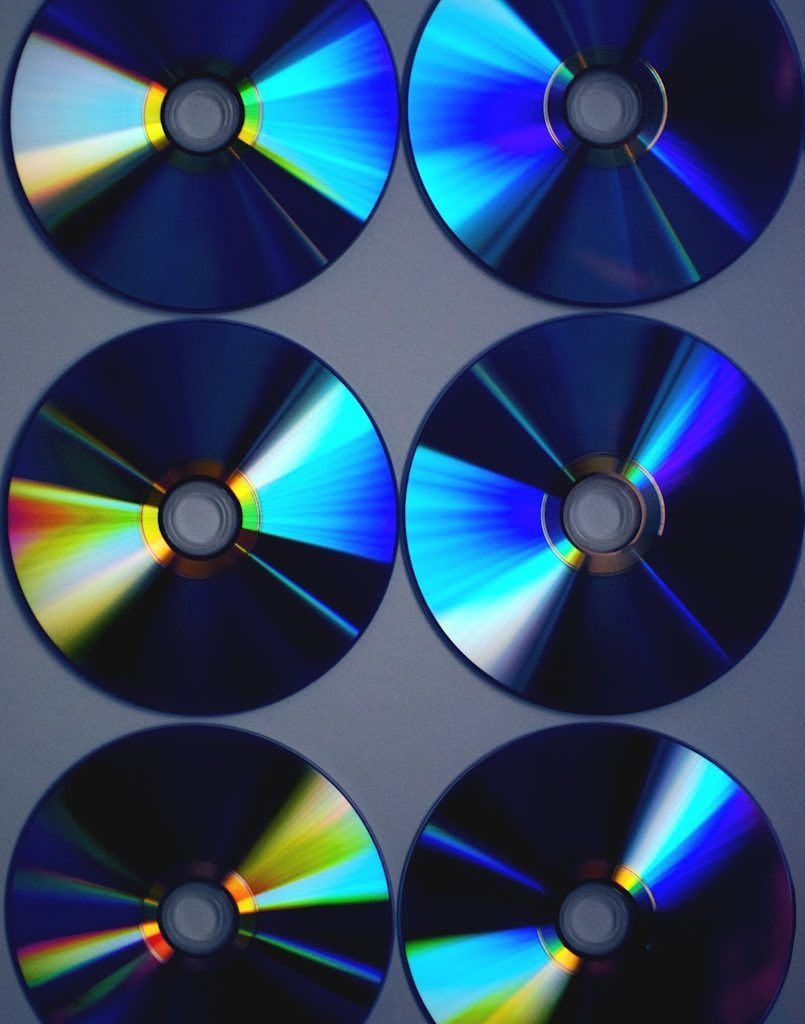Have you ever wondered how much information a DVD can hold? DVDs, short for Digital Versatile Discs, are an amazing way to store data. Whether it’s your favorite movie, music album, or important files, DVDs have been a reliable storage option for years. The storage capacity of DVDs depends on the type of DVD and how it’s made.
Let’s explore DVD storage capacity in simple terms so you can understand what makes them special.
What Are DVDs and Why Are They Useful?
A DVD is like a flat, shiny disc that can hold lots of information. You might have used them to watch movies or save photos, but there’s more to them than meets the eye.
Why DVDs Are Still Relevant
Even in 2024, DVDs are useful because:
- They are affordable.
- They don’t need the internet to work.
- They are great for keeping data safe for a long time.
Different Types of DVDs and Their Storage Capacities
There are many types of DVDs, and each has a different storage size. Here’s a breakdown:
1. Single-Layer DVDs (DVD-5)
- Capacity: 4.7 GB
- Uses: Movies, software, and small file backups.
- This is the most common type of DVD.
2. Dual-Layer DVDs (DVD-9)
- Capacity: 8.5 GB
- Uses: High-quality videos and larger files.
- These have two layers to store more data.
3. Double-Sided Single-Layer DVDs (DVD-10)
- Capacity: 9.4 GB
- Uses: When you need more space but don’t mind flipping the disc.
4. Double-Sided Dual-Layer DVDs (DVD-18)
- Capacity: 17 GB
- Uses: Very rare, but useful for storing huge amounts of data.
How DVD Storage Works
DVDs store information in the form of tiny bumps on their surface. A laser reads these bumps, turning them into data like videos, music, or files.
- Single-layer DVDs have one layer of bumps.
- Dual-layer DVDs have two layers, almost like two floors in a building.
This layering is why some DVDs can hold more data than others.
How Does DVD Storage Compare to CDs and Blu-rays?
If DVDs are like a small suitcase, CDs are like a tiny handbag, and Blu-rays are like a huge trunk. Here’s how they stack up:
| Type | Capacity | Uses |
|---|---|---|
| CDs | Up to 700 MB | Music and small files. |
| DVDs | Up to 17 GB | Movies, backups, software. |
| Blu-rays | Up to 128 GB | High-definition videos, games. |
So, DVDs are perfect if you need something bigger than a CD but smaller than a Blu-ray.
Why Do DVDs Have Different Capacities?
The capacity of a DVD depends on:
- Layers: More layers mean more space.
- Sides: Double-sided DVDs can store twice as much.
- File Type: Videos take more space than documents or photos.
Simple Ways to Maximize DVD Storage Capacity
1. Choose the Right DVD Type
- For small files, a DVD-5 is enough.
- For movies or large files, go for a DVD-9 or DVD-18.
2. Compress Files
- Use tools like HandBrake to shrink video files without losing quality.
3. Organize Files
- Save only what you need and keep everything well-arranged.
Common Uses of DVDs in Daily Life
DVDs are more versatile than you might think. Here’s how people use them:
1. Watching Movies
DVDs are still a favorite for movie lovers, especially in areas with slow internet.
2. Storing Family Photos and Videos
Burning cherished memories onto a DVD ensures they stay safe for years.
3. Backing Up Data
DVDs are great for saving important files like school projects, office documents, or financial records.
4. Sharing Content
Instead of sending huge files online, you can burn them onto a DVD.
Are DVDs Still Useful in 2024?
Yes! Even though we have streaming and cloud storage, DVDs are still valuable. Here’s why:
- Offline Access: No internet? No problem with DVDs.
- Durability: Properly stored DVDs can last decades.
- Cost-Effective: DVDs are cheaper than some other storage options.
Frequently Asked Questions About DVDs
Q1. What is the maximum storage capacity of a DVD?
The largest DVDs, called DVD-18, can hold up to 17 GB of data.
Q2. Can I use a DVD more than once?
Only rewritable DVDs (like DVD-RW and DVD+RW) can be erased and reused.
Q3. Why do Blu-rays hold more data than DVDs?
Blu-rays use a blue laser that is more precise, allowing more data to fit on the disc.
Q4. Are DVDs better than USB drives?
It depends. DVDs are great for long-term storage, but USB drives are faster and more portable.
Fun Facts About DVDs
- A single-layer DVD can store about 2 hours of video.
- If you stacked all the DVDs sold globally, they would reach the moon!
- DVDs were first introduced in 1995 and quickly became popular for movies and data storage.
Conclusion: Why DVDs Are Still Awesome
Understanding what DVD storage capacity means can help you choose the right type for your needs. Whether you’re backing up files, watching a classic movie, or storing memories, DVDs are reliable, easy to use, and affordable.
So, the next time you’re thinking about where to save your data, consider a DVD. It’s like having a trusty friend that keeps your stuff safe for years to come!
Related Articles:
For further reading, explore these related articles:
- Top Rap Songs of All Time: A Journey Through Hip-Hop Legends
- Discovering Sixpence None the Richer: A Band That Stole Our Hearts
For additional resources on music marketing and distribution, visit DMT RECORDS PRIVATE LIMITED.






